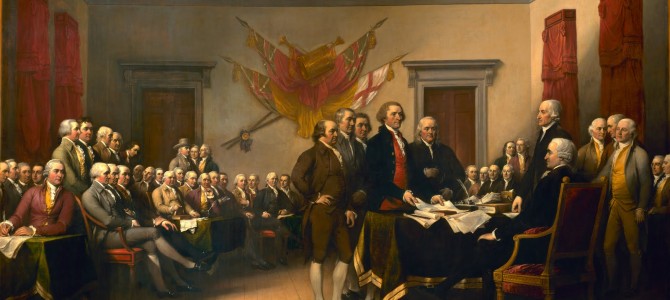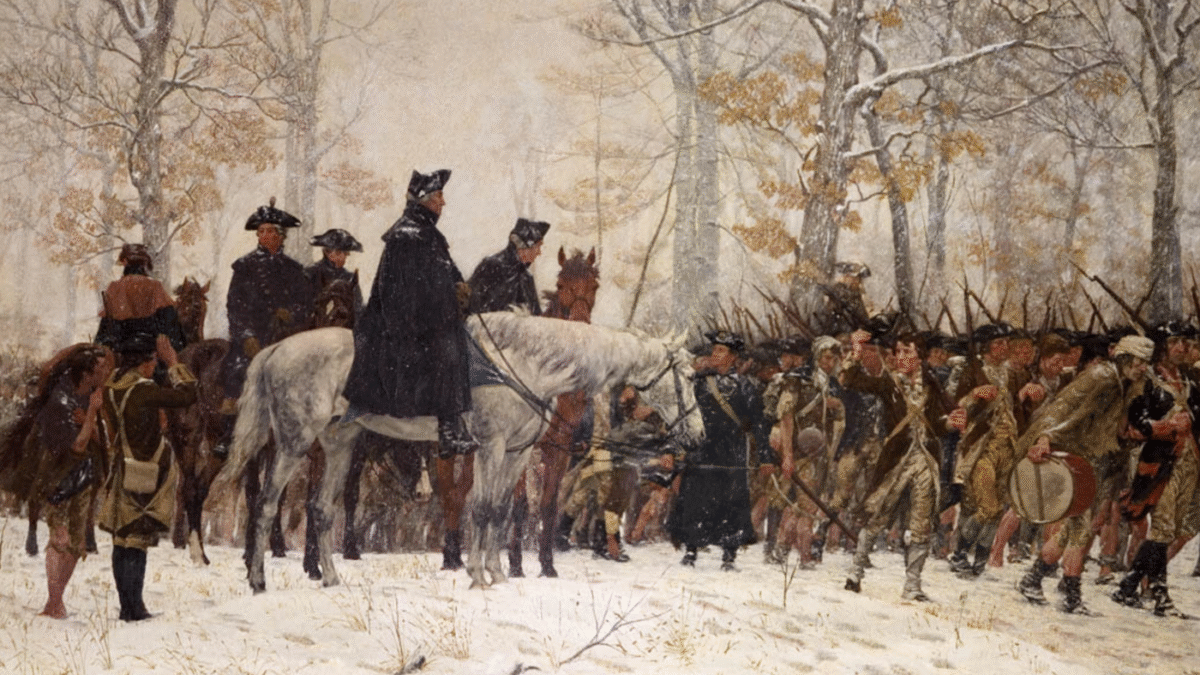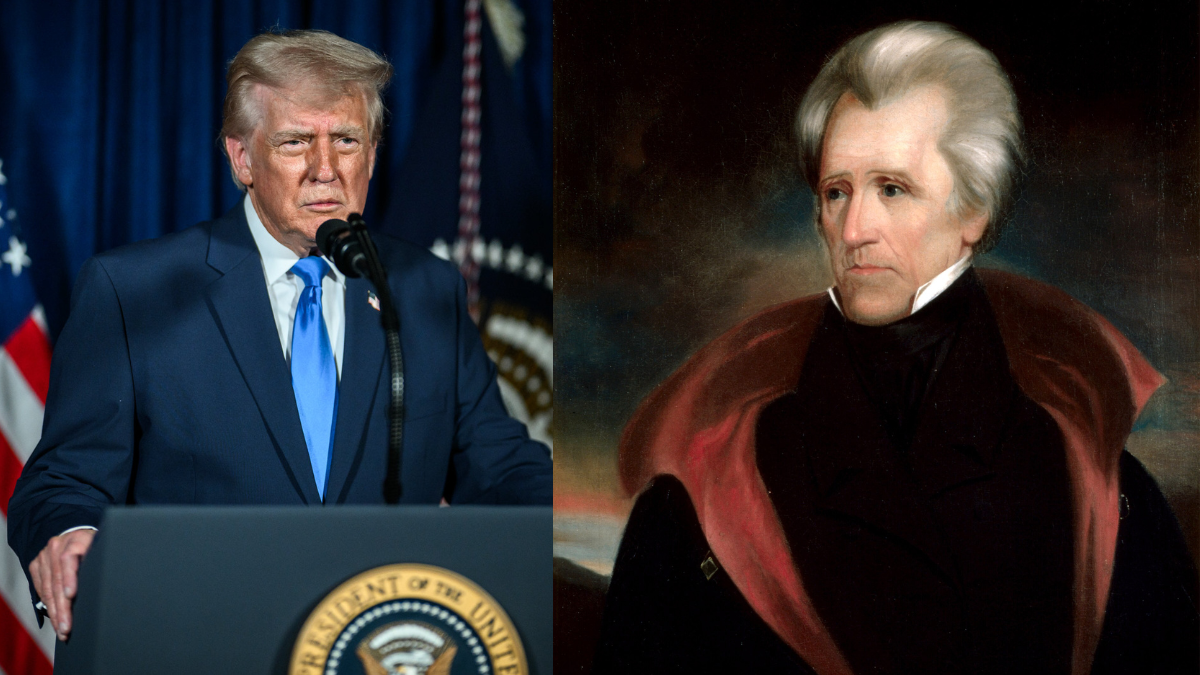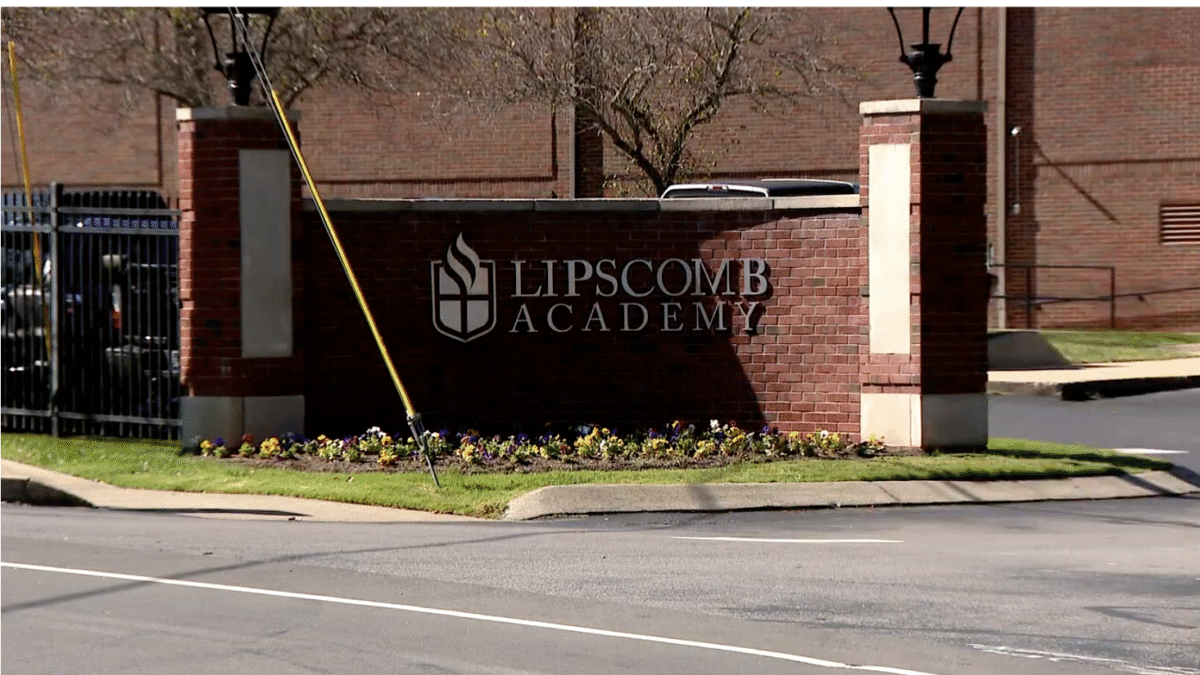
In Abraham’s Lincoln’s 1857 speech on the Dred Scott Decision, he alludes to what was likely a customary way for mid-nineteenth-century Americans to celebrate the Fourth of July—besides drinking whiskey and shooting guns, which they probably did (and some of us still do). Lincoln says, “I suppose you will celebrate; and will even go so far as to read the Declaration.”
(Lincoln’s comment here was an aside—his larger point was that according to Stephen Douglas, the Declaration was nothing more than a justification for the colonists to withdraw their allegiance to the British, and that by this reading “the Declaration is of no practical use now—mere rubbish—old wadding left to rot on the battle-field after the victory is won.”)
Suppose you and your family decide to celebrate the Fourth according to the old custom this year, and at some point between the burgers and fireworks you gather everyone together and read the Declaration of Independence out loud. Once you get past the familiar opening—“When in the course of human events,” etc.—you’ll get into the list of grievances against King George III, “a history of repeated injuries and usurpations, all having in direct object the establishment of an absolute Tyranny over these States.”
Most of us are less familiar with this section, but the list follows a standard rhetorical structure: it begins with the least severe crimes and gradually ramps up to the worst.
About two-thirds of the way down, you’ll notice a few injuries and usurpations that have a certain resonance today, like “imposing Taxes on us without our Consent”—think Obamacare’s individual mandate penalty, which was only construed as a “tax” by the Supreme Court after the fact. The accusation that King George “erected a multitude of New Offices, and sent hither swarms of Officers to harrass our people” should call to mind the deliberate targeting and harassment of conservative groups by the IRS, possible evidence of which was apparently “lost” when former IRS official Lois Lerner’s computer crashed.
But pay close attention to one item a little further down on the list, about “taking away our Charters, abolishing our most valuable Laws, and altering fundamentally the Forms of our Governments.” That one is especially germane. Earlier this week, U.S. Senator Ted Cruz released the latest in a series of reports on the Obama administration’s attempt to expand federal power, highlighting a “persistent pattern of lawlessness” and a willingness to disregard the written law and instead enforce policies through executive fiat.
Cruz’s report catalogs the administration’s 20 unanimous defeats before the Supreme Court during the past five-and-a-half years, a tally that’s all the more striking for the string of defeats it suffered in the Supreme Court’s recently concluded term, including rulings this week in the Hobby Lobby case and Harris v. Quinn. In a statement accompanying the report, Cruz said the “inescapable conclusion is that the Obama Administration’s view of federal power knows virtually no bounds.”
That’s very much like the complaint Jefferson and the Founders had with King George. In the spirit of the Declaration, the Cruz report lists some things the federal government would be able to do had the White House’s lawyers won these cases:
- Unilaterally install officers and bypass the Senate confirmation process (NLRB v. Noel Canning);
- Search the contents of cell phones without a warrant (Riley v. California);
- Use international treaties to displace state sovereignty over criminal law (Bond v. United States);
- Expand federal mandatory minimum sentencing laws (Burrage v. United States);
- Apply arbitrary immigration rules (Judulang v. Holder)…
And the list goes on. Given the Obama administration’s spectacular losses in court, one could be forgiven for thinking that the president doesn’t think much of “altering laws and fundamentally abolishing our forms of government.” After all, that’s been the progressive project for more than a century. Woodrow Wilson—the Founding Father of American progressivism, if you will—was vexed above all by the Constitution’s separation of powers. For him, the maxims of the Founders were an impediment to good governance and to truly democratic politics: “The old political formulas do not fit the present problems; they read now like documents taken out of a forgotten age.”
One good thing about Wilson, though, was that he just came out and said exactly what he thought. The Obama administration, in contrast, has tried to couch its effort to dismantle the separation of powers in the language of the Constitution. In its brief before the Supreme Court for NLRB v. Noel Canning, the administration argued that the president’s 2012 recess appointments to the National Labor Relations Board were justified, and that disallowing such appointments “would prevent the President from being able to fill offices, and exercise his constitutional responsibility to take care that the laws be faithfully executed, even when the Senate is unable, for a significant period of time, to give its advice and consent to appointments.”
The justices saw through this flimsy rhetoric and ruled unanimously that the president had overreached. Even the New York Times recognized that the 9-0 ruling was “momentous, involving a constitutional adjudication of the balance of power between the president and the Senate.” In other words, it was a rare victory for the separation of powers.
So when you’re reading the Declaration of Independence out loud in the backyard this Fourth, remember what was at the heart of the Founders’ complaint with old King George. Remember also that the Declaration, together with the Constitution, evinces the genius of a free people—and that attempts to alter fundamentally our form of government will never go away. From King George to Woodrow Wilson to the current administration, no wonder they say eternal vigilance is the price of liberty.
Now go do a shot of whiskey and shoot some guns.
Follow John Davidson on Twitter.









